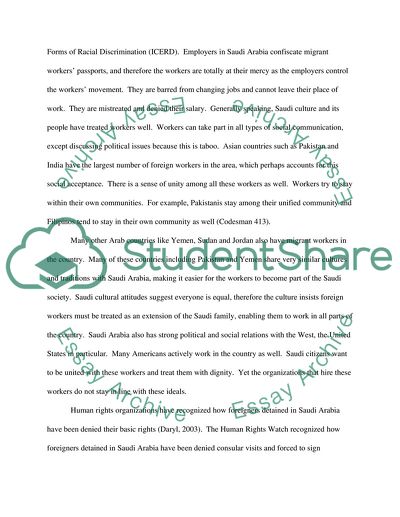Cite this document
(Treatment of Foreign Workers in Saudi Arabia Research Paper - 3, n.d.)
Treatment of Foreign Workers in Saudi Arabia Research Paper - 3. Retrieved from https://studentshare.org/human-resources/1737312-research
Treatment of Foreign Workers in Saudi Arabia Research Paper - 3. Retrieved from https://studentshare.org/human-resources/1737312-research
(Treatment of Foreign Workers in Saudi Arabia Research Paper - 3)
Treatment of Foreign Workers in Saudi Arabia Research Paper - 3. https://studentshare.org/human-resources/1737312-research.
Treatment of Foreign Workers in Saudi Arabia Research Paper - 3. https://studentshare.org/human-resources/1737312-research.
“Treatment of Foreign Workers in Saudi Arabia Research Paper - 3”, n.d. https://studentshare.org/human-resources/1737312-research.


